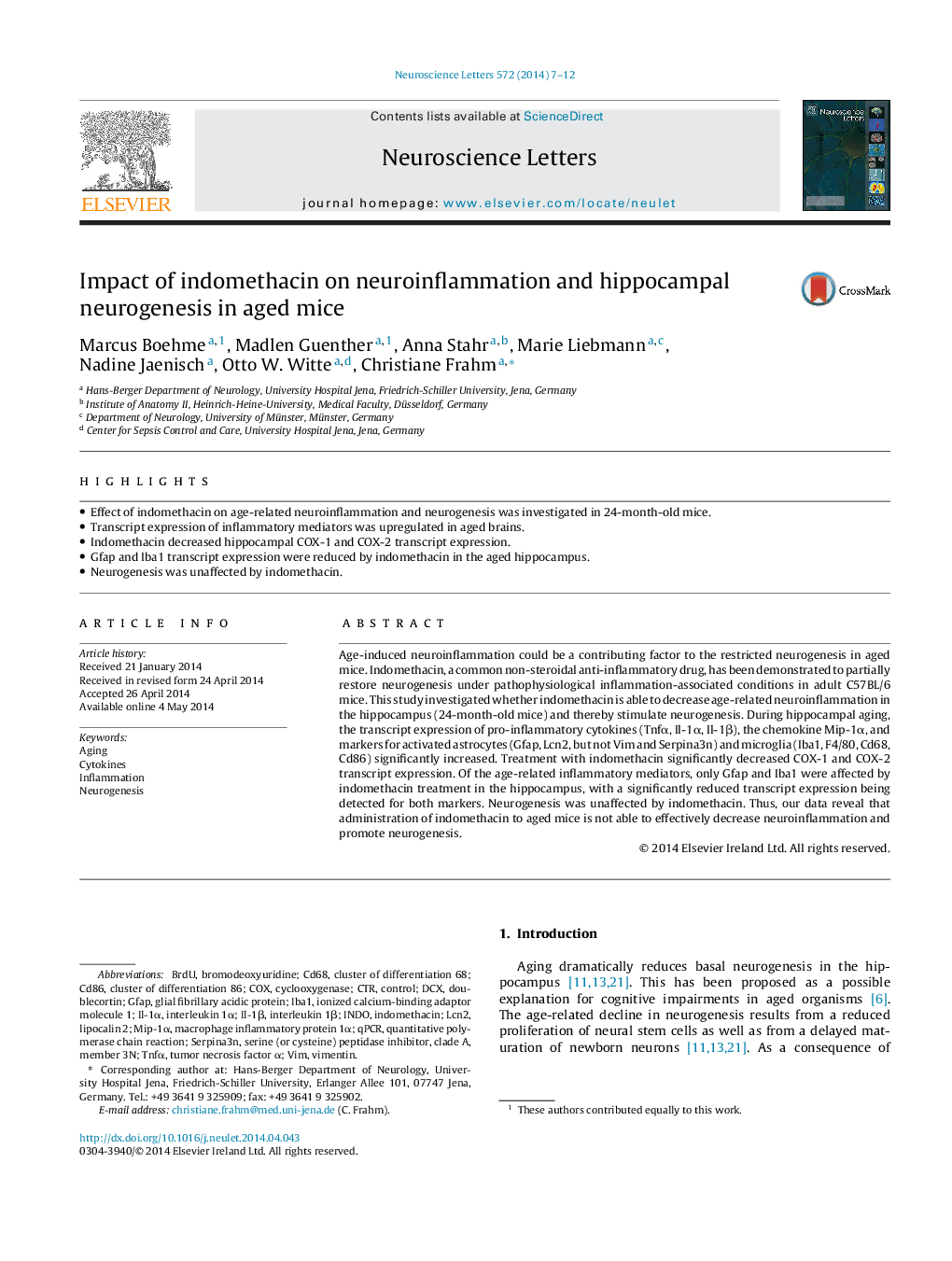| Article ID | Journal | Published Year | Pages | File Type |
|---|---|---|---|---|
| 6281822 | Neuroscience Letters | 2014 | 6 Pages |
Abstract
Age-induced neuroinflammation could be a contributing factor to the restricted neurogenesis in aged mice. Indomethacin, a common non-steroidal anti-inflammatory drug, has been demonstrated to partially restore neurogenesis under pathophysiological inflammation-associated conditions in adult C57BL/6 mice. This study investigated whether indomethacin is able to decrease age-related neuroinflammation in the hippocampus (24-month-old mice) and thereby stimulate neurogenesis. During hippocampal aging, the transcript expression of pro-inflammatory cytokines (Tnfα, Il-1α, Il-1β), the chemokine Mip-1α, and markers for activated astrocytes (Gfap, Lcn2, but not Vim and Serpina3n) and microglia (Iba1, F4/80, Cd68, Cd86) significantly increased. Treatment with indomethacin significantly decreased COX-1 and COX-2 transcript expression. Of the age-related inflammatory mediators, only Gfap and Iba1 were affected by indomethacin treatment in the hippocampus, with a significantly reduced transcript expression being detected for both markers. Neurogenesis was unaffected by indomethacin. Thus, our data reveal that administration of indomethacin to aged mice is not able to effectively decrease neuroinflammation and promote neurogenesis.
Keywords
TNFαcluster of differentiation 86VIMCD86LCN2MIP-1αCD68IL-1αVimentinIBA1DcxIL-1βCTRCOXGFAPqPCRcyclooxygenaseinflammationIndomethacininterleukin 1αinterleukin 1βBrdUbromodeoxyuridinetumor necrosis factor αCluster of differentiation 68doublecortinAgingCytokinesLipocalin 2ionized calcium-binding adaptor molecule 1Neurogenesisindoquantitative polymerase chain reactionGlial fibrillary acidic proteinMacrophage inflammatory protein 1αControl
Related Topics
Life Sciences
Neuroscience
Neuroscience (General)
Authors
Marcus Boehme, Madlen Guenther, Anna Stahr, Marie Liebmann, Nadine Jaenisch, Otto W. Witte, Christiane Frahm,
